Melgaço International Documentary Film Festival
Participants
Abi Feijó
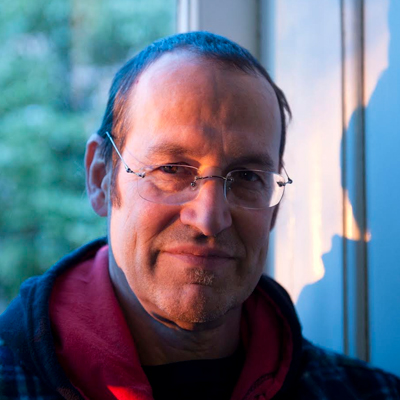 foto by Rui Farinha
foto by Rui Farinha
Director, Producer, Professor of Animation Cinema and Director of the House Museum of Vilar. PhD from University of Fine Arts of Porto (1980). Internship at the National Film Board of Canada (85), where he directed his first film. Founder of Filmógrafo (87), Casa da Animação (2001), Ciclope Filmes (02) and Quinta Imagem (12). Director of the following films: How Calm it is (1985), Time of Darkness (87), The Outlaws (93), Portuguese Fado (95), Stowaway (00) and Our Lady of the Presentation (15) among others, which received over 40 mentions and awards. Worked as Producer on (since 97): The Night (99), Tragic Story with Happy Ending (05) and Kali the Little Vampire (12) by Regina Pessoa, Amélia & Duarte (15) by Alice Guimarães and Mónica Santos. The films produced have received around 95 awards and mentions. Tutor in several Animation Film workshops in Portugal, Spain, France, Italy, Israel, Scotland, Poland, Brazil, Mexico, Lebanon and China, especially with children (since 1985) and young people. Professor at Catholic University of Porto (99-01), ESAP (02-16), Na Tainan National University of Arts (Taiwan) (06-09), ESAG Guimarães (since 2009) and University of Algarve (12-13), at BAU - Centro Universitário de Diseño of Barcelona (15-17). He also served as President of ASIFA - International Animation Film Association (00-02) and Vice President of ASIFA Workshop Group (95-01). Co-author of the interactive manual Teaching With Animation (www.animwork.dk/twa). Producer of the animated short films: Uncle Tomás and the Accountability of Days by Regina Pessoa, in co-production with ONF/NFB from Canada and with Les Armateurs (France) and also Ride by Paul Bush, a co-production with Ancient Mariner, UK. In 2019, he was invited to join the American Academy of Motion Picture Arts and Sciences, which awards the Oscars. Abi is currently running the Casa Museu of Vilar - the Moving Image (since 2014).
Aida Vallejo
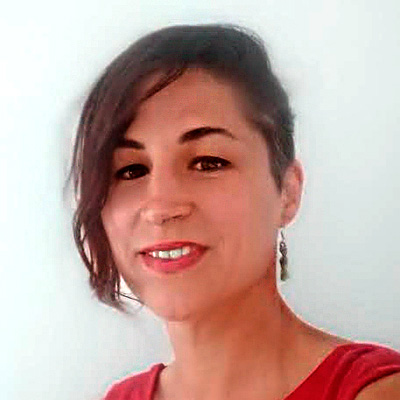
Professor of documentary film at University of the Basque Country (Spain). She is an expert on creative documentary and film festivals, having worked in these fields as a critic, scriptwriter, consultant, researcher and lecturer. Co-editor of the books Documentary Film Festivals Vol.1 and Vol.2 and Film Festivals and Anthropology. Member of selection committees for the San Sebastian International Film Festival documentary co-production forum and Cine Invisible Human Rights Film Festival, and moderator of the Bilbao’s documentary festival forum Zinebi Networking. She is also the coordinator of the Spanish delegation of the European Film Academy’s University Award.
Albertino Gonçalves
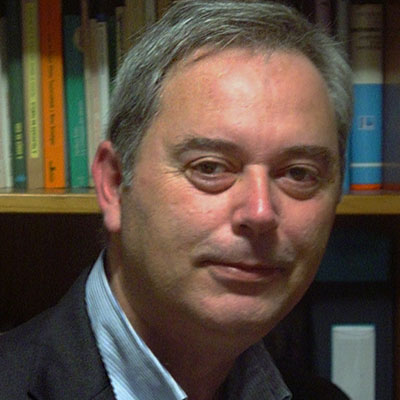
Albertino has a master’s degree in Sociology from the University of Paris V-Sorbonne (1981) and a doctorate in Sociology from Universidade do Minho (1994), where he aggregated in the Sociology disciplinary group (2005). He has been teaching, since 1982, subjects in the field of social sciences methodology and cultural sociology, lifestyle and the arts. Coordinator of the post-graduation courses at Institute of Social Sciences, a member of the founding committee of Casa Museu of Monção and researcher at the Studies Center Communication and Society.
Alfonso Palazón Meseguer
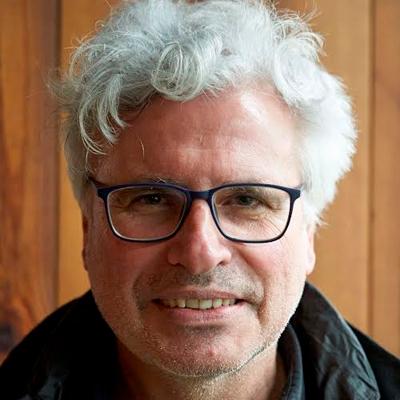
Winner of the Aurélio Paz dos Reis International Award 2016. He has worked on different projects as a screenwriter, producer and director, among which we highlight: Senegal. Apuntes de un viaje, 2007; Sunuy Aduna (Nossas Vidas), 2009; 20 anos dando vida aos dias, 2012. The feature-length documentary Al escucha el viento (2013) as producer, screenwriter and director was selected for competition at the International Festival de Valladolid 2013. Co-producer in the transmedia documentary project La Primavera Rosa (nominated Goya Awards 2018 in Mexico). His most recent project was the short documentary Juan Brito: Tamia (2019). The Webdoc project: Mirages on Highly Vulnerable Refugees is currently being completed.
Alona Savchuk
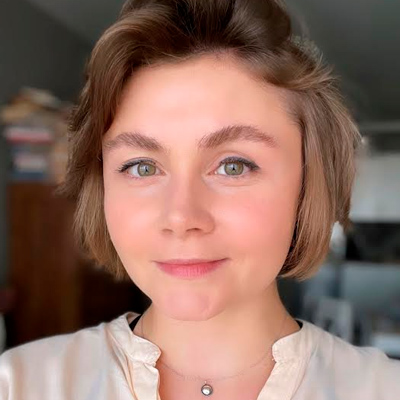
Alona Savchuk (1989) is a Ukrainian reporter and the author of documentary podcasts focused on human rights violations, ethnic and religious conflicts and refugee crisis. Alona works mainly in Ukraine, Belorussia, Turkey, Georgia, Iraq and Syria. For 3 years (2016-2018) have covered the persecution of the Ukrainian and Crimean Tatars political prisoners who were arrested and convicted in trumped-up terrorism cases in occupied by Russian Federation Crimea. In November 2018 Russian FSB has banned her from entry into Crimea and Russia for 10 years, till 2028. Currently Alona has been working in Ukraine, covering Russian invasion of her native country.
Álvaro Domingues
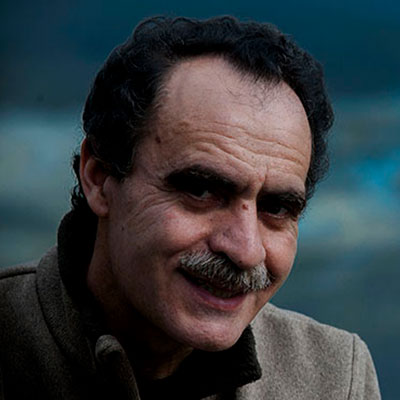
Álvaro António Gomes Domingues (Melgaço, 1959) is a geographer, PhD in Human Geography and associate professor at the Faculty of Architecture of the University of Porto. Teaching activity: Teacher of the integrated master's and doctoral program in Architecture and PhD Course at FAUP; Member of the Scientific Council at FAUP; Professor of the Master’s degree "Project of the Urban Environment" (FAUP/FEUP); Teacher of PhD Course of Architecture of the University of Coimbra.; Professor of the Summer Courses at the Serralves Foundation; Visiting professor at the Federal University of Rio de Janeiro; Visiting Professor at the University of Granada. Regularly collaborates with other universities, foundations, Público newspaper, cultural and professional associations, whilst developing a regular activity as a lecturer. Research fields: Urban Geography, Urban Planning, Landscape, Territory, Cultural Policy. His recent books include: Vida no Campo (ed. Dafne, Porto, 2012), A Rua da Estrada (ed.Dafne, Porto, 2010) and Políticas Urbanas II (Calouste Gulbenkian Foundation, Lisbon, 2012 with Nuno Portas and João Cabral)
Annabel Verbeke
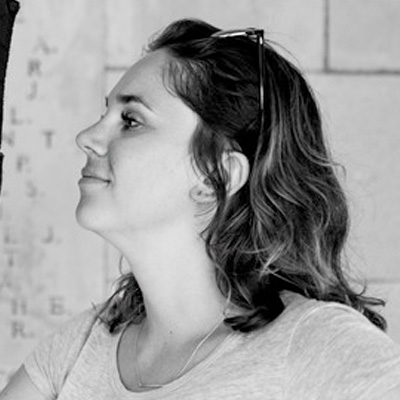
Annabel Verbeke, born in Ypres, 1987, is a Belgian documentary filmmaker. In 2010, Annabel graduated Cum Laude at RITCS Film School in Brussels. Her graduation film "Les enfants de la mer/mère" - "Children of the sea" won 8 international awards and was selected by more than 20 international film festivals. Her next film We Will Remember Them was the closing film of Visions Du Réel 2018 and the most watched documentary film on Flanders national broadcasters in the same year.
Anna Huth
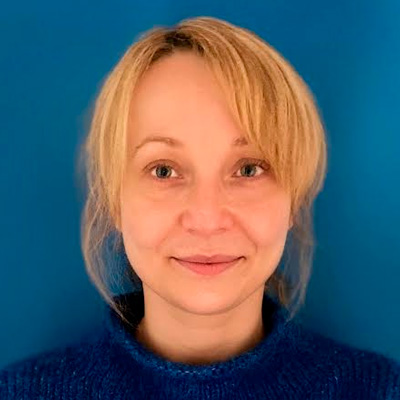
Director of the Institute of Film and Theatre Arts at University of Silesia in Poland and an assistant professor at the Kieslowski Film School. Since 2015 Anna creates and coordinates an international student short film festival – Węgiel Film Festival, which in 2020 was the first online film festival in Poland. She works as a production manager on the documentary films, among others, “Sonny" by P. Chorzepa (IDFA 2019, Silver Hobby-Horse at Krakow Film Festival 2020), “Museum of Races” by M. Koszałka (ESoDoc 2020) and “Kiosk” by D. Stopa (Ex Oriente 2020), "Through the window" by D. Stopa (FEST 2021).
António Aleixo
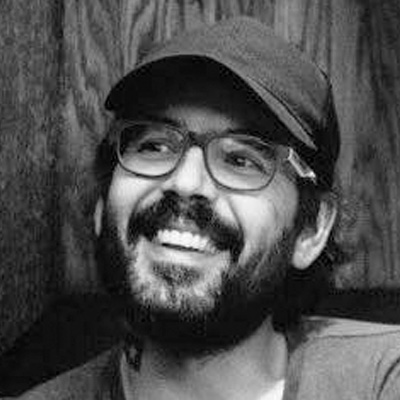
Awarded by the Portuguese Film Academy Sophia Award 2019 for best short documentary amongst others before and after, I’m a storyteller at heart with a sharp eye for rhythm and emotions. I live to inspire others and take pride in realising that, from film to film, I become better at what I do.
António Martinho Baptista
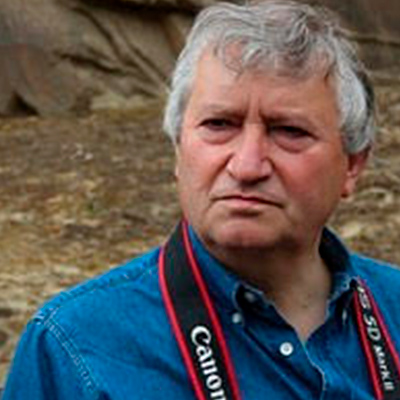
Martinho graduated in History from the Faculty of Arts of the University of Lisbon (1975). Since then his career as a researcher has been closely linked to the study of Prehistoric art. He was responsible for the development of research projects in the main rupestrian art complexes in Portugal - Tagus Valley, Arte do Côa, Alqueva, Guadiana, Tagus Valley Art, Sabor and Zêzere, rupestrian sites of the NW Peninsular, the prehistoric art of the Estrela and Açor mountains, the art of schematic-symbolic painted shelters in Portugal, among others. He was an archeologist and head of the Environmental Information and Education Division of the Peneda-Gerês National Park between 1979 and 1997. In that year, he assumed the position of Director of the National Rock Art Center (1997-2007). He was a guest professor in the chair of Pre and Proto-Historical Art at the University of Minho and a member of the Rock Art Committee of ICOMOS (UNESCO consultant). Martinho was Director of the Côa Archaeological Park between 2012 and 2017.
Ansgar Schaefer
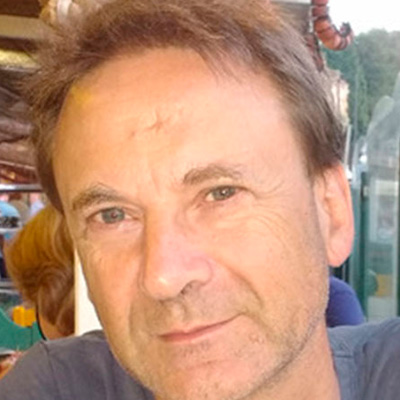
Ansgar Schaefer is co-founder of Kintop, general-manager (since 2012), producer, and project developer at Kintop. He holds a PhD in Contemporary Portuguese History with a thesis on the subject of Visual History (focus: Portuguese colonial wars). He produced several feature documentaries, such as Fordlandia Malaise (Berlinale 2019), Anything and All ( Locarno Film Festival 2018), Luz Obscura (premiere Cinéma du Réel, Paris 2017), 48 (Grand Prix Cinéma du Réel Paris, OPUS BONUM, Jilhava 2010, FIPRESCI Award, 2010) and several multimedia instalations. He co-directed and produced the documentaries Journey to the Sun (2021) and The Other War (2010).
Carlos Natálio
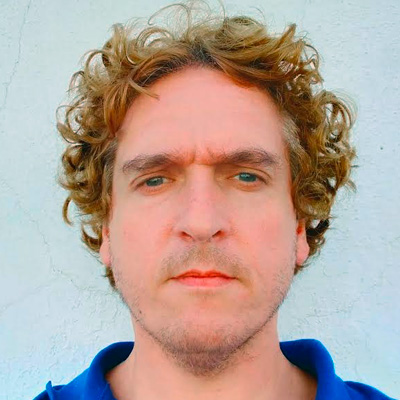
Graduated in Cinema and in Law, and PhD in Communication Sciences with a thesis on Education for the Cinema, having collaborated over the years in several international (CinEd; Shortcut; Moving Cinema) and national (Os Filhos de Lumière, Plano Nacional de Cinema, Cinema Batalha) projects in that field. Film critic and a founding member of the cinephilia website À pala de Walsh. Since 2019, he has been a member of the feature film selection committee of the IndieLisboa festival. Carlos is a professor at the Degree in Cinema and a researcher at the Center for Research in Science and Technology of the Arts (CITAR), both at the School of Arts (EA), from Catholic University of Portugal-Porto.
Cornélia Eckert
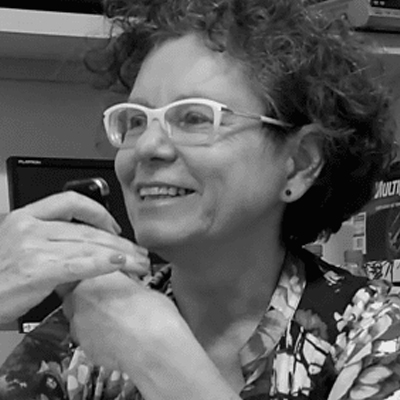
Bachelor's Degree in History (1981) and Degree in History from the Federal University of Rio Grande do Sul (1980), Master's Degree in PPGAS IFCH UFRGS (1985), Doctorate in Social Anthropology - Paris V - Sorbonne, Université Renne Descartes (1991). She completed a postdoctoral program in Sound and Visual Anthropology, Paris VII (2001) and carried out a postdoctoral program at the Institute for Latin American Studies at the Freie Universität Berlin, Germany in 2013. Retired Full Professor and currently visiting professor at the Postgraduate Program in Social Anthropology at the University Federal do Rio Grande do Sul. Lines of research: visual and image anthropology, urban anthropology, anthropology and the environment. Coordinator of the BIEV portal www.biev.ufrgs.br and of the Visual Anthropology Center (NAVISUAL). Researcher at NUPECS (PPGAS UFRGS) at CEPED (UFRGS). Editor of the e-magazine Iluminuras, Fotocronografia magazine and participates in the Editorial Committee o Horizontes Antropológicos magazine.
Daniel Maciel
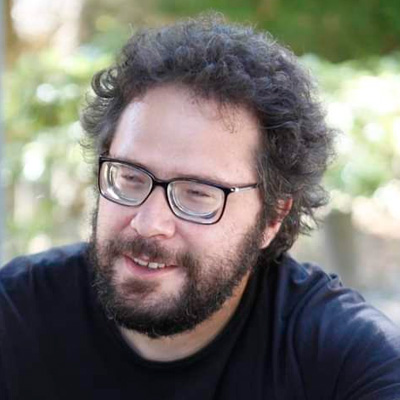
Daniel is a member of AO NORTE and holds a PhD in Anthropology – Power, Resistance and Social Movements, from the Faculty of Social and Human Sciences of Universidade Nova de Lisboa. He develops research on uses and practices of culture aimed at marginalized populations, with a special interest in its application in prison contexts. Alongside AO NORTE he has been collaborating in projects of collection, inventory and reflection around historical photographs in personal albums.
Diana Gonçalves
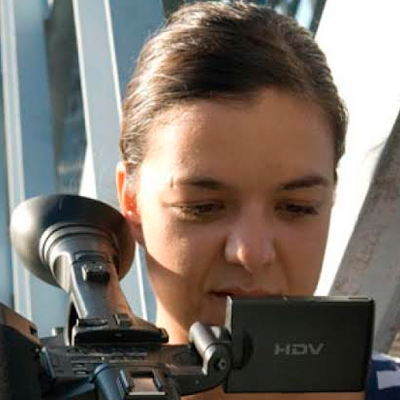
Born in Tui in 1986. She has a degree in Audiovisual Communication from the University of Vigo (2008). Master in Communication and Creative Industries from the University of Santiago de Compostela (2013). In 2009 she produced and directed her first documentary film Mulleres da Raia, which received several awards at various national and international festivals. In 2010, she took her first steps as a television director, collaborating with producer Pórtico Audiovisuales on the program Ben Falado for Televisión de Galicia. At the same time, in the field of production, she collaborated with the Galician Agency for Cultural Industries (AGADIC) and Cinemar Films. In 2010, she coordinated the documentary “Carlos Velo: Mirar al margen”. Between 2009 and 2013, she was a member of the documentary laboratory "El Retrato Filmado", directed by Marta Andreu. Palmira, is her second documentary. Currently, she combines her role as a documentary filmmaker with an activity focused on marketing and corporate communication.
Felipe M. Guerra
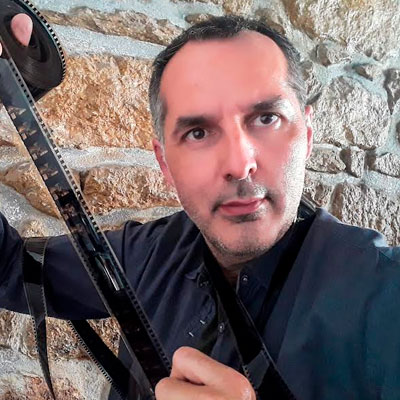
Felipe M. Guerra is a Brazilian-born journalist and filmmaker. He began his career making independent films on video in the 1990s. Since then, he has ventured into various genres (horror, comedy, documentary) and had his works screened at festivals such as Fantasporto, in Portugal, and Sitges, in Spain. More recently, he has devoted himself to the production of documentaries about cult filmmakers such as US producer Roger Corman and Italian filmmakers Luigi Cozzi and Ruggero Deodato. The latter, called “Deodato Holocaust” (2019), was commercially released in Europe and the United States. Between 2014 and 2019 he was manager and programmer of the Cine Santander Cultural cinema, one of the most important in the south of Brazil. In Portugal since 2019, Felipe is currently part of the team of trainers for the CINEpoetry and The Lumière In the Classroom projects, developed by AO NORTE, Association for Audiovisual Production and Animation.
Giliam Spliethoff
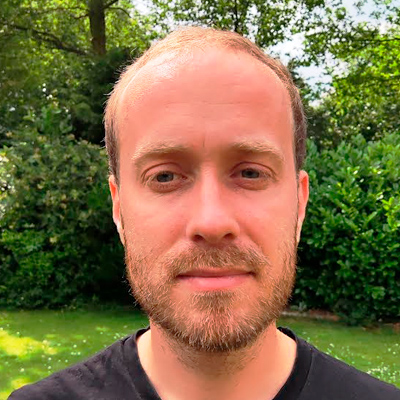
Giliam Spliethoff is a composer based in Rotterdam. He works on a variety of projects ranging from games to interactive installations and film. Apart from being a pianist, he enjoys working with sound and blending it into his compositions.
Gonzalo Ballester
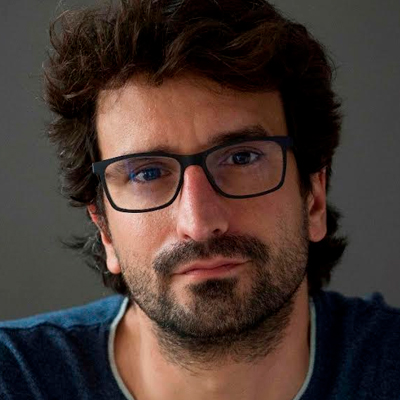
Director Gonzalo Ballester stands out with his first short film, "Mimoune" (2006, 11'), winner of around 20 awards and selected in 100 international festivals. Later "La Serenissima" (2006, 30') was nominated for best short film at the 2007 Goya Awards. A graduate of the European Film College in Denmark, he later directed other short films such as "The Last Landscaper" (2007, 25'), " The Molky Way" (2009, 24'), "Al-Madina (The City)" (2011, 14') and presents his first documentary feature, "Al Otro Lado del Mar" (2011, 65'). In 2015, he premiered "Ramón Gaya. Pintura como Destino" (2015, 53') on TVE's Indispensáveis do 2 program. He works at the production company José Luis López Linares (from 2010 to 2015) acting as camera operator, sound designer, editor and production assistant in documentaries such as "Altamira, the origin of art", "Jerez and the mystery of the cut stick", "Champions (La Roja)" etc. His most recent documentary, entitled "The Council of Good Men (A Lei do Jardim)" (2019, 35 ́), is about the day-to-day life of this Court, UNESCO Intangible Heritage. Gonzalo currently resides in Murcia, making different audiovisual works for institutions such as Teatro Circo Murcia, video clips and documentaries. He has just finished his latest work, titled “Karim” (2021, 23 ́), which will be released soon.
Helena Elias
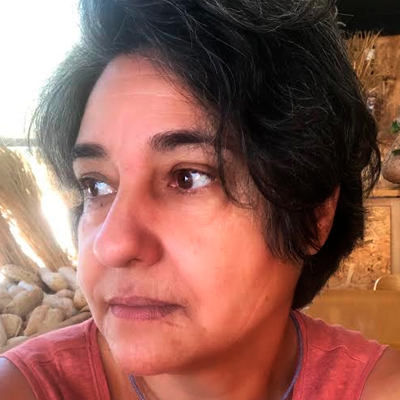
Helena Elias is Assistant Professor of Sculpture at the Faculty of Fine Arts of Lisbon (FBAUL). She was awarded with a PhD in Public Art, Faculty of Fine Arts of Barcelona (2007), in the area of Sculpture, an MArts, Grays School of Arts, Robert Gordon University, Aberdeen, UK (2000) and a BFA (hons)in Sculpture, FBAUL (1999). Previously, she was an FCT Postdoctoral Fellow in Sculpture at FBAUL_VICARTE. As an artist, teacher and researcher, she articulates teaching and artistic practice, exhibiting work and publishing several articles, workshops and book chapters. She coordinates The Making of Arts and Sciences Research line of VICARTE-FBAUL, with the ARcTic South project, funded by EEA Grants. She is part of the research team of the project MEMORY WORK and the project Photo Impulse: measuring the colonies and their bodies (PTDC/COM-OUT/29608/2017). She has recently been artist in residence for the Creative Europe Pass the Mic! Decolonize Education through arts (CREA 616850/2020).
Hugo Dos Santos
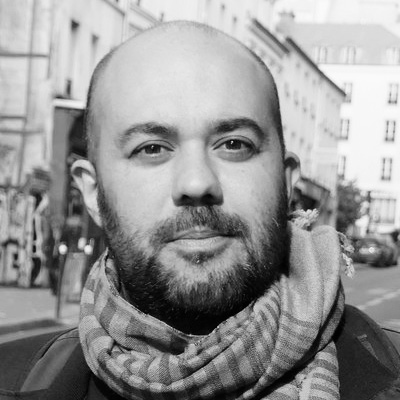
Hugo Dos Santos graduated in Contemporary History and Cinema. After a career in documentary where he worked on the audiovisual archives of films dealing with immigration, exile, colonialism or social struggles, he turned to journalism in parallel.
Ivan Deance
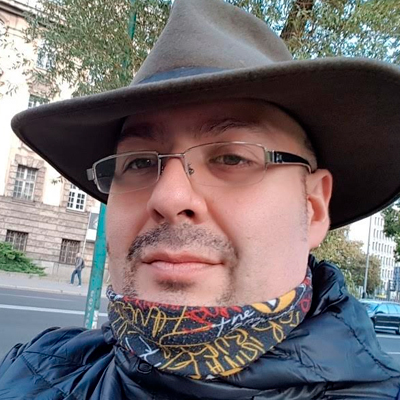
Having been born for the record of memory, he dedicates himself to the preservation of stories and memories about minorities in Mexico and other parts of Latin America for over 20 years. An anthropologist and historian by career and affection, he has experience in regional studies, oral history and management of photographic and sound archives. Ivan is a member of Mexico's National System of Investigators. ivan@deance.org.mx - www.deance.org.mx
Jennifer Rainsford
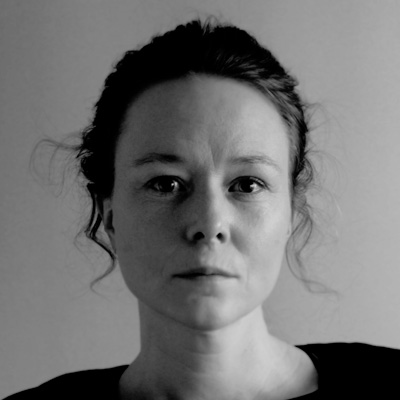
Jennifer Rainsford, is a visual artist and director based in Stockholm. Her short films and installations have been shown at festivals such as Oberhausen, Berlinale, Rotterdam and CPH: DOX. Her last film Lake on Fire was selected for the main competition “Startsladden” at Gothenburg IFF 2020.
Jack Hoefnagel
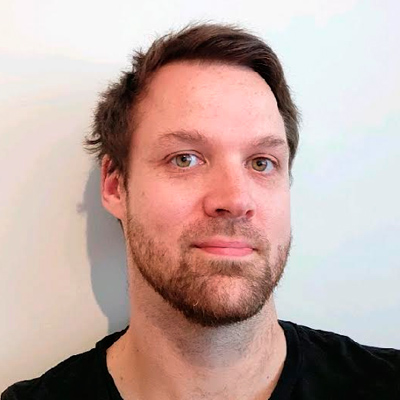
Game Designer (Freelance) & Lecturer Game Design at Rotterdam University of Applied Sciences Jack is a game developer and designer, is performing ongoing research about the connection between cinematography and interaction design, and is forever interested in the storytelling capabilities and strengths of various game-controllers. As well as anything about VR/AR/MR/XR, animation, music-games and (indie) art games
Jorge Campos
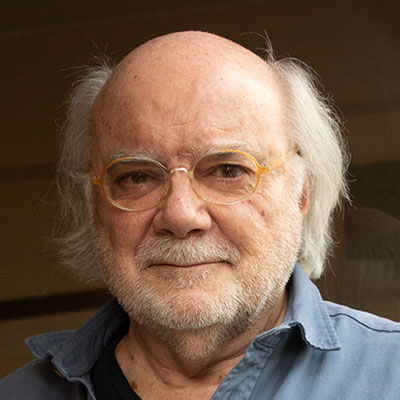
PhD in Communication Sciences from the University of Santiago de Compostela, expert in Documentary Film, professor of Higher Education, journalist, filmmaker and cultural programmer. Throughout the years, he has taught courses in Cinema and Communication Sciences in several higher education establishments, namely the University of Porto, Catholic University and Escola Superior de Música, Artes e Espetáculo (ESMAE) of the Polytechnic Institute of Porto. As a journalist he worked in the Press, Radio and Television, namely for RTP, where he spent 25 years. He made several documentaries, among others, about General Humberto Delgado, Mário Cláudio, Martins Sarmento, Miguel Torga, Eugénio de Andrade, Nadir Afonso, Teixeira Gomes and Fernando Lanhas. He also wrote numerous articles and made hundreds of journalistic pieces covering a wide variety of stories. Awarded and distinguished several times in different fields, namely with the Gazeta de Televisão of the Clube de Jornalistas and the Special Prize of the University of Santiago de Compostela. Coordinator of the blog Narrativas do Real. He regularly integrates national and international film festival juries. Programmer responsible for the Cinema, Audiovisual and Multimedia area of Porto 2001 – European Capital of Culture, as well as the cycle of Photography and Documentary Cinema Images of Imagined Real from the Polytechnic Institute of Porto, he was an independent MP elected by the Left Bloc and vice-president of the Culture, Media and Youth Commission of Parliament between 2015 and 2018. He is currently a professor at the University of Maia.
João Lafuente
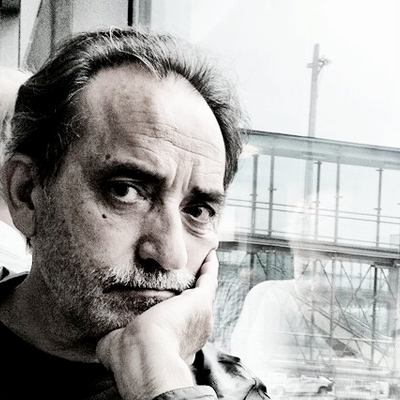
Graduate in Applied Mathematics from the University of Porto, worked as a computer technician at Caixa Geral de Depósitos. He has been dedicated to photography since adolescence, with some of his works published in books and magazines. Participated in collective exhibitions and held individual exhibitions and in co-authorship with Manuela Matos Monteiro. Among the various exhibitions produced are "Carnival in Venice", "The Harvest", "Crystalline light", "Istanbul - Roadmap of melancholy", "Tropicana / Matanzas", "South of Dakar" Istanbul and Lisbon - Roadmaps of melancholy ". Among other interventions, we should also mention his work in co-authorship on the river Douro: official photograph of the 250th anniversary of the demarcated region, an exhibition about the region in Parliament (" the Douro on the Tagus” with Siza Vieira, José Rodrigues and Gracinda Candeias), in the European Parliament / Brussels, Paris, Bordeaux, Maputo and Beira (Mozambique), in various areas of the Douro and Porto. Since October 2013, with Manuela Matos Monteiro, João has been running the galleries ESPAÇO MIRA and MIRA FORUM, in Campanhã, Porto.
José Oliveira

Since 2010, José Oliveira signs several projects including Father Christmas (2010) and Faraway (2016, presented at Locarno Film Festival). In 2020, he finished two feature films: The Night’s Advices and War (co-directed by Marta Ramos). Paz, co-directed with Marta Ramos, is his last project. He regularly writes about films in Foco – Cinema Magazine and is the co-founder of Lucky Star – Braga’s Film Club, together with João Palhares. They are the authors of “A Voyage Through American Cinema”, a book that compiled their texts on the film they programmed. He is currently teaching Film History and Film Directing at Escola Superior de Artes e Design de Cascais.
José da Silva Ribeiro
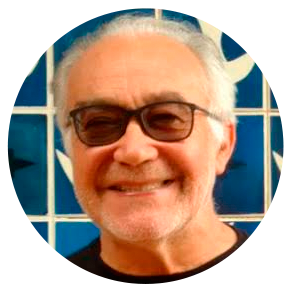
Graduated in Philosophy from the University of Porto (1976), PhD in Cine Vídeo from the Escola Superior Artística do Porto (1989), master’s degree in Multimedia Educational Communication from the Open University of Portugal (1993) and doctorate in Social Sciences - Anthropology from the University Open of Portugal (1998). Former professor at the Open University of Portugal. He has vast experience in the field of Anthropology, with an emphasis on Visual Anthropology, working mainly on the following themes: visual anthropology, digital anthropology, cinema, research methods in anthropology, interculturality and Afro-Atlantic culture. Fieldwork undertaken in Portugal, Cape Verde, Brazil, Argentina and Cuba. He coordinated the International Network of Scientific Cooperation Images of Culture / Image Culture. Visiting professor at Mackenzie University (Education, Art and History of Culture), UECE, UCDJB, University of Murcia - Spain (ERASMUS) and University of Savoie - France, University of S. Paulo. Researcher at GI - Media and cultural mediations - CEMRI: Open University. Former Visiting professor at UFG - Faculty of Visual Arts 2016-2019. Currently preparing a work project - Teaching, Research and Extension at the Federal University of Maranhão. José coordinates the Group of Studies in Cinema and Digital Narratives of AO NORTE - Association of Animation and Audiovisual Production
José Vieira
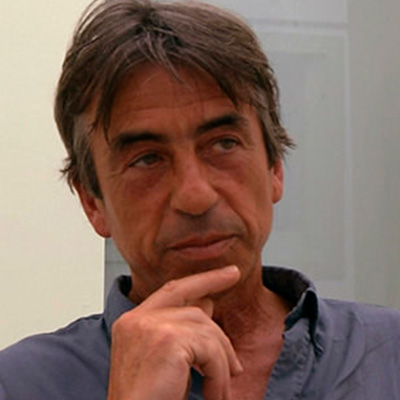
José Vieira. Film director of Portuguese origin, lives and works between Portugal and France. He has directed around thirty documentaries since 1985, namely for France2, France3, La Cinquième and Arte. Born in Oliveira de Frades, he left for France in 1965, at the age of seven. His personal experience as a migrant and the many stories heard and related from other emigrants inspired his latter-day work as a director. Starting from individual stories, he traced the portrait of emigration in France, recovering an entire collective memory in the process.
Juan Pablo Gonzalez
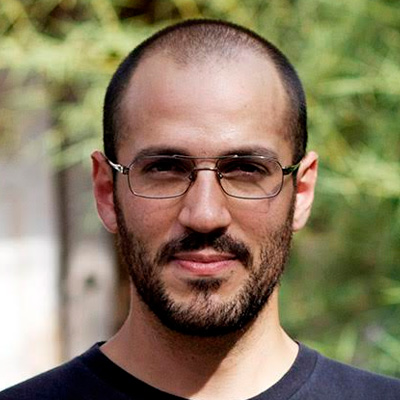
Film Director, Professor at Cal Arts and co-director of the Film Directing Program. Named one of Filmmaker Magazine’s “25 New Faces of Independent Film” in 2015, Juan Pablo González's films have been screened at numerous festivals and venues around the world. Juan Pablo's practice spans between fiction and non-fiction cinema. His work is primarily set in Atotonilco el Alto, his hometown. Juan Pablo is concerned with representations of the rural, drug violence, immigration and the intersection between urban and country life in different communities around the Jalisco Highlands. His work and collaborations have screened at film festivals such as Cannes, Locarno, IDFA, Edinburgh, Slamdance, Morelia, Full Frame, among others. He’s been a grantee of the Mexican National Fund for Culture and Arts (FONCA) and his work has been supported by the Sundance Institute, the Mexican Film Institute (IMCINE), the Tribeca Film Institute and the Venice Biennale. Juan Pablo was awarded the 2021 Vilcek Foundation Prize for Creative Promise.
Klaus Schriewer
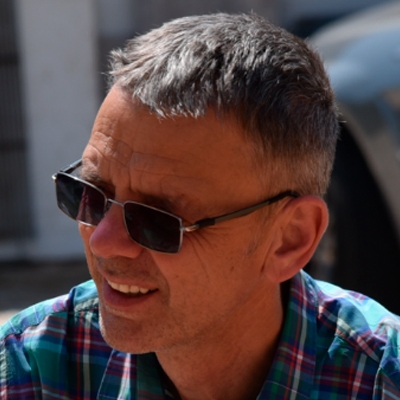
Professor of Social Anthropology at the University of Murcia. Holder of the Jean Monnet Chair (2011-2014, 2019-2022) and director of the Center for European Studies at the University of Murcia (CEEUM 2013-2018 and from 2020 onwards). He studied European Ethnology at the University of Marburg (Germany) and the University of Copenhagen (Denmark). Klaus was a regular guest professor at the Københavns Universitetem in Copenhagen, the University of Hamburg and the University of Basel. His research deals with the relationship between man and nature (with the example of the cultural dimension of the forest and landscape), the relationship between state and culture (including the European Union), economic anthropology (based on the debate on means of production and ways of life), funerary culture and analysis of consciousness that starts from an updated narratology. The project linked to the Jean Monnet Presidency (2019-22), focuses on the cultural dimension of European integration and the current difficulties that occur in this process.
Leila Macaire
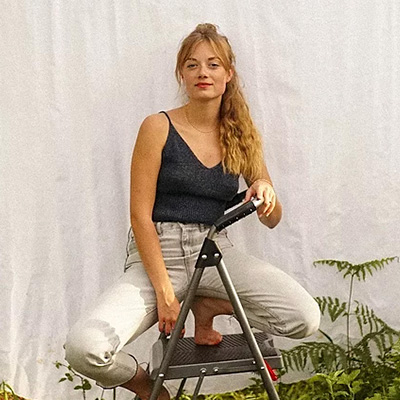
Leila Macaire is a French director and photographer living in Paris. Identity and social diversity are two themes recurring most presently in her work. Both in film and photography she questions and defends human rights as much as women's rights, finding expression through visual and aesthetic research.
Luís Mendonça
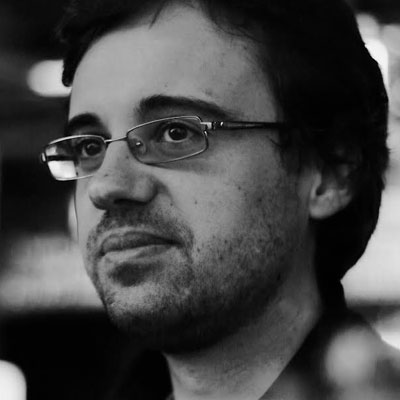
Luis holds a PhD in Communication Sciences from the Faculty of Social and Human Sciences of the Nova University of Lisbon (NOVA FCSH) and has a master's degree in the same field from the same faculty, on the specialty of Cinema and Television. He teaches cinema and photography courses at NOVA FCSH and at the Portuguese Institute of Photography. He has written books, articles and organized or participated in numerous symposia on cinema, photography and the philosophy of the image. He organized various film cycles, namely as a programmer at the Cinemateca Portuguesa – Museum of Cinema. Luis also directed several videos and audiovisual essays.
Manuela Penafria
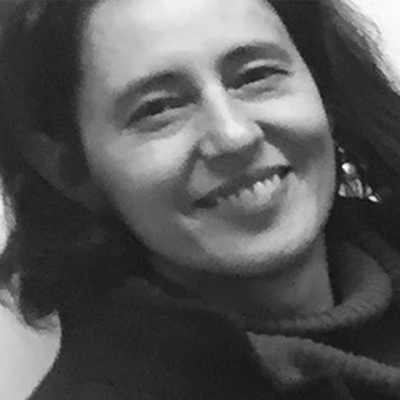
Professor in the 1st and 2nd Cycles in Cinema courses, at UBI-University of Beira Interior. Member of the editorial board of journals in Portugal and Brazil, as well as member of the scientific committee in several events. Member of the Advisory Board of the AIM-Association of Moving Image Investigators, where she is a coordinating member of the Working Group “Filmmakers’ Theory”. Co-editor of DOC On-line Magazine (www.doc.ubi.pt) and researcher at Labcom-Comunicação e Artes.
Manuel Nicolas Meseguer
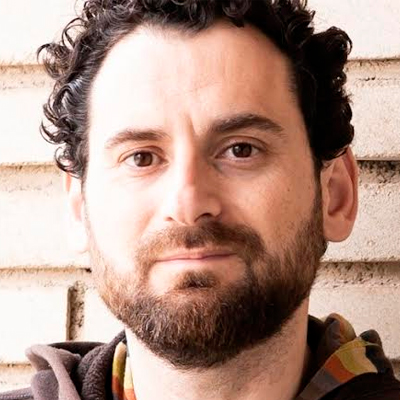
Professor of Audiovisual Communication at the University of Murcia and researcher in the History of Cinema. Coordinator of the University's film classroom. He also worked as a professor at the Higher School of Dramatic Art in Murcia and at the Centro de Estudios Ciudad de la Luz (Alicante). He is a member of the Spanish Association of Film Historians, the Union of Filmmakers and Cinemur. After completing his Master's in History and Aesthetics of Cinematography at the University of Valladolid, he obtained a doctorate at the University of Murcia. Manuel has carried out research residencies at the University of the Arts and Humboldt University (both in Berlin), as well as at New York University (NYU) and teaching residencies at the National University of Mexico, the University of Bonn and the University of Lüneburg (Germany). Among his publications is a monograph dedicated to a mythical production company from the 30s and 40s: Hispano Film Produktion. A Spanish adventure in the cinema of the Third Reich (Santander: ShangriLa, 2017). He also directed the experimental film Berlin Series, finalist at the Ponferrada Film Festival and the Ischia Film Festival (Italy, 2012).
María Yáñez Anllo
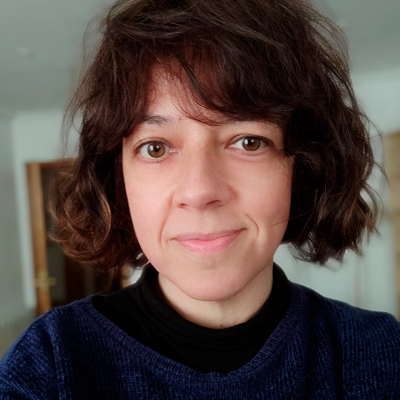
María has been working as a journalist in digital media for two decades, developing audiovisual content for the internet and designing audiovisual communication strategies for production companies such as Portocabo and films such as Vilamor (Ignacio Vilar, 2012), Encallados (Alfonso Zarauza, 2014), Os Dias Afogados (Luís Avilés and César Souto, 2016), Eroski Paraíso (Jorge Coira and Xesús Ron, 2019), Ons (Alfonso Zarauza, 2020), Malencolía (Alfonso Zarauza, 2021) or Sica (Carla Subirana, 2021). Among her audiovisual works as a screenwriter and director are the documentary Linguas Cruzadas (Televisión de Galicia, 2007), the program O País dos Ananos (TVG 2008-2009), the webdocumentary Eufalo.TV (2009-2010), the documentaries Cancasete (2014), Vinte falando (Vinte & SXPL, 2019) and Unha nova vida (BNG, 2020) or the six-chapter documentary series Xela Arias, la palabra esgazada (Miramemira para la Real Academia Galega, 2021). She was a founding partner of the company A Navalla Suíza (2008-2017), with which she carried out numerous web communication projects, including online cinema platforms such as Flocos.TV, Lugar do Real and Screenly. She has curated several digital culture projects, like the Carballo Interplay festival or the LAIC in A Coruña. She is currently directing VINTE, an online magazine on society, culture and trends linked to the newspaper Praza.gal, and is a professor at the Masters in Social Media and Digital Content at the University of Vigo.
Mariano Baez Landa
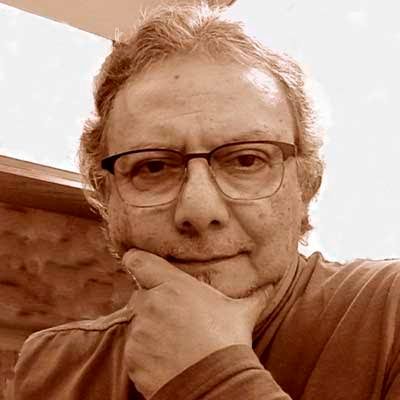
A Mexican national, he graduated in Anthropology from Universidad Veracruzana, Master’s in Social Anthropology from CIESAS and PhD in Social Sciences from the State University of Campinas SP Brazil. Mariano has worked at CIESAS since 1983, where he is a research professor at the regional unit of the Gulf. Coordinator of the Research Network in Audiovisual Anthropology (RIAA) at the Latin American level and is part of the Researcher Network in Visual Anthropology of CIESAS (RIAV-CIESAS).
Marion Schmidt
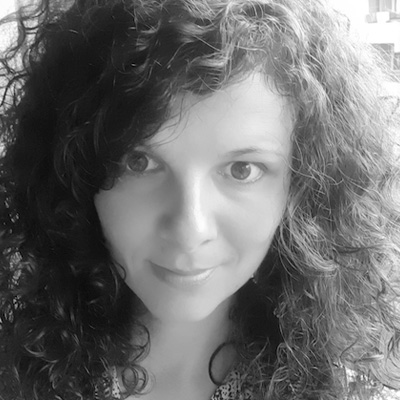
Marion is Co-director of the Documentary Association of Europe (DAE). She is one of the co-founders of DOX BOX e. V. Berlin, and until April 2020 was their Events & Award Manager and project manager of the international Documentary Convention in 2018 and 2019. With more than 10 years of experience, she has worked across Europe and in the Arab region, including for the Goethe-Institut Cairo, European Film Market, Berlin and Social Enterprise UK in London. Marion holds a Master’s degree in Arts Administration & Cultural Policy from the University of London, UK. Marion is a project manager, curator and consultant for individuals and organizations. Her clients include Deutsche Welle Akademie, Goethe-Institut and elbarlament GmbH, among others. Her field of expertise is international cultural project management and organizational development in the international documentary, arts and development sector.
Marta Ramos
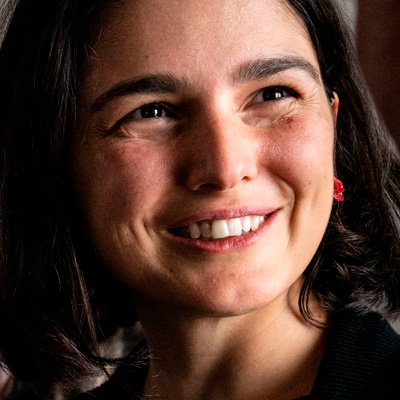
Marta Ramos was born in Lisbon in 1984, studied in Fundão and Guarda and returned to the capital to graduate in Architecture from Universidade Técnica. However, singing was the expression that held her from within and it´s this calling that she wants to pursue. She has also collaborated in several independent films. Paz, co-directed with José Oliveira, is her last project.
Maythem Ridha
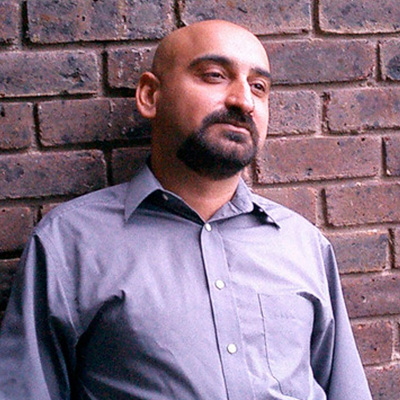
Maythem spent his formative years in Iraq before fleeing with his family into exile. He has many years’ experiences creating award-winning film and photography projects. His films have been selected for major international film festivals, broadcasted, distributed in cinemas and won many accolades and prizes.
Miguel Dores
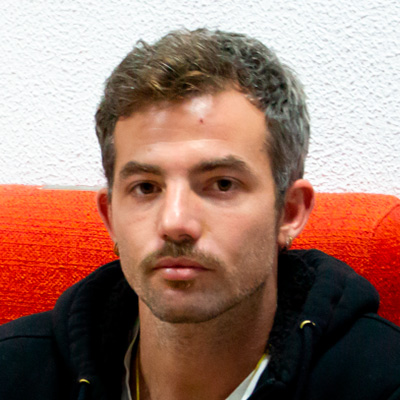
Mastering in Visual Anthropology at FCSH, he has developed several works in the areas of ethnographic audiovisual production, production of cultural projects and academic production in cinema and social sciences. Among these stands out, in cultural production, the project Microcine Migrante (São Paulo) and Cinesur (Lisbon), and in audiovisual production, the project Visto Permanente (São Paulo).
Mina Rad
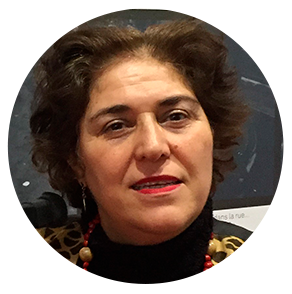
Mina Rad left her native country at the age of 18, the day after the Iranian revolution to purse her dream like Oriana Fallaci and become an international reporter. After studying history, journalism and communication at the Sorbonne Paris, she embarked on international political journalism in various Central Asian countries. She worked for the BBC, RFI and AFP. While traveling the world, for twelve years, she discovers another passion, World Music. She became Editor-in-Chief of World Music Supplements for The World of Music. Between 1990 to 2000 she traveled the world and produced supplements devoted to the music of rare and emerging countries for; Yemen, Egypt, Cuba, Cape Verde, Marocco and India. In 2011 and 2014, she trained in the production and writing of documentaries at Ateliers Varan. Her first film "For me the sun never sets," was awarded the prize for best documentary film at the Festival of Truth in Iran in 2012. This film got the jury mention, "for the warmth and simplicity to tell a deep story". She is the founder and president of Apresvaran, an alumni association of Ateliers Varan created in 2013. She is director of the Apresvaran Documentary Film Festival. As a documentary filmmaker, she has directed more than ten films. In preparing several documentaries, she notes that the documentary opens a window to the universe. Mina Rad has made several portraits of people who have marked the history of Iran: "This family of 60 people",and "History of the Mafi family". Mina Rad, is interested in the transmission of knowledge and the methods of the realization of great filmmakers like Jean Rouch (France), Pierre Perrault (Quebec, Canada). She directs and produces documentary films based on the influence of these cineastes. In 2017, the film "Jean Rouch Persian look", was broadcast by TV5 Monde on the occasion of the centenary of Jean Rouch. EN 2019, The film "Persian Tales, Jean Rouch in Iran" was presented at Melgaco International Documentary Film Festival in Portugal. It will be published in Montparnasse publisher in France in a series of films dedicated to Jean Rouch. EN 2019, "The future of the past, Pierre and Yolande Perrault", which reflects the influence of this filmmaker after half a century on the little children of the characters of his films at Isle aux Coudres. This film was in the official selection of the Festival for Art at FiFA in Montreal. And it is scheduled at the Jean Loup Passak awards at the Melgaco International Documentary Film Festival.
Nenad Popovic
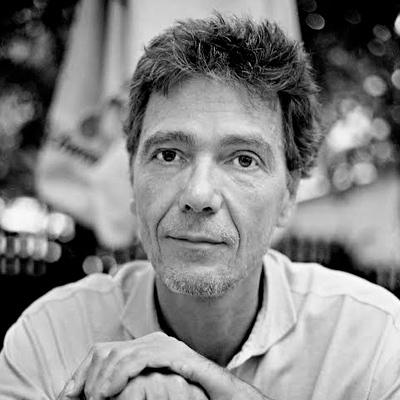
Born in 1963, in Zagreb, Croatia, which was then part of SFR Yugoslavia. I have two sons. I studied Comparative Literature and English Language at the University of Zagreb. During studies started doing subtitling of English programs for TV, which also started my translation career. From the beginning of our war in the '90s, I worked increasingly frequently for UN and other international organisations. Eventually I moved to The Hague where I primarily worked as simultaneous interpreter in the courtrooms of the Tribunal for Former Yugoslavia. Met the documentary film director, Eliane, in 2017, during my last year with the tribunal.
Nikola Ilić
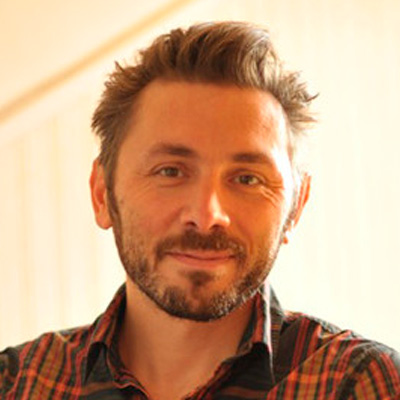
Nikola Ilić (1977, Belgrad) is a director and cinematographer living between Serbia and Switzerland. In 2010 he majors in Video at the Lucerne School of Art and Design.
Olívia Marques da Silva
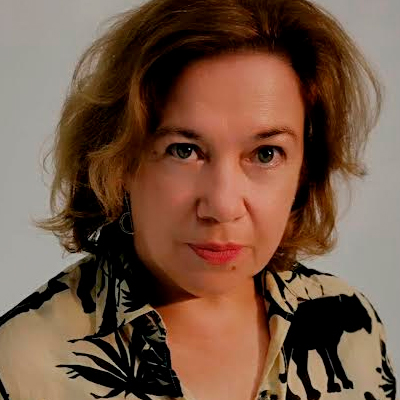
Guest researcher at the Audiovisual Studies Group at the University of Santiago Compostela and PhD in Photography at the Derby School of Art & Design, UK (Ph.d., Mphil/Ph.d./MA). She received a scholarship from the Calouste Gulbenkian Foundation and the Portuguese Photography Center. Olívia associates academic activity with artistic expression as a photographer, participating in several individual and collective exhibitions. Collaborator in various publications on the themes of Visual Anthropology and Documentary Photography. Her connection to the Polytechnic of Porto began in 1992, where she was director of the Department of Image Arts at the ESMAE School. She created and was coordinator of the Masters in Audiovisual Communication in the fields of Specialization in Photography and Audiovisual Cinema and Audiovisual Production and Direction. Former president of the Technical-Scientific Council of ESMAE. Collaborator with the following research centres: GEV-Universidade Santiago Compostela, CCRE-FAUP and eCPR- European Center for Photographic Research at South Wales University. She is currently a member of the General Council of P.Porto, member of the Management Council of P.Porto, 2nd term as President of the Escola Superior de Media Artes e Design (ESMAD) of P.PORTO.
Paula Tavares

Paula Tavares is a professor, artist and researcher. She has a Phd in Fine Arts (2006). She is Vice-President at the Polytechnic Institute of Cávado and the Ave where she is the Dean of the School of Design (since 2015). She is the Diretor in ID+ Research Institute for Design, Media and Culture (http://www.idmais.org/pt-pt/) and she coordinates the CAOS group Communication, Art, Object and Synergies (since 2017). She is also the General Chair of CONFIA - International Conference on Illustration and Animation (since 2012) (http://www.confia.ipca.pt/). Periodically she participates in seminars, workshops and conferences, publishing in the areas of Drawing, Design, Illustration and Animation. Has participated in several design competitions - national and international, academic and professional - as a jury. She is represented as an artist in several collections and since the 1990s she has participated in exhibitions and artistic events.
Paulo Carneiro
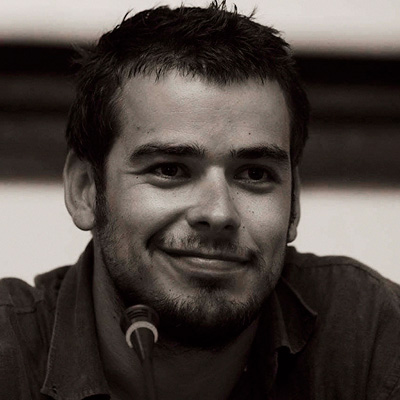
Born in Lisbon, 1990 and raised in Pontinha (suburbs). He graduated in Sound and Image from ESAD.CR and later from the National Film School and HEAD – Genève (Calouste Gulbenkian Foundation fellow). Works as assistant director and editor since 2011. Lectured Cinema as visiting professor at FLUC in ’21 (University of Coimbra). In 2018 directs his first feature film Bostofrio, Où Le Ciel Rejoint La Terre.
Paulo Ferreira da Costa

Paulo has a degree in Anthropology and, since 2015, has been Director of the National Museum of Ethnology / Museum of Popular Art, having previously worked at the National Museum of Ethnology between 1993 and 2001. Whilst In the Directorate- General for Cultural Heritage, he served as Head of Division of Immovable, Movable and Intangible Heritage (2012-2014). Director of the Intangible Heritage Department of the Institute of Museums and Conservation (2007-2012) and Director of Inventory Services of the Portuguese Institute of Museums (2002-2007). As part of his management duties at the National Museum of Ethnology / Museum of Popular Art, he has given particular importance to the digital transition, through the development of several projects for digitizing archives and collections, for this purpose applying the guidelines and working instruments that were previously developed, on a national scale, within the scope of the functions he performed at the Institute of Museums and Conservation and at the Directorate-General for Cultural Heritage.
Pedro Mota Teixeira
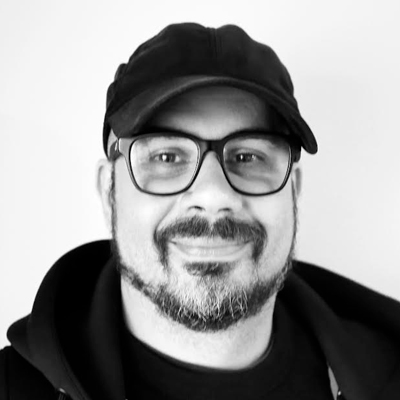
Holds a PhD in Communication Sciences, specializing in Audiovisuals, from the University of Minho (2013); Master in Multimedia Art (2007) and degree in Communication Design (2001) from the Faculty of Fine Arts of the University of Porto. Post-doctorate in the field of animation cinema at the University of Aveiro (2021). He studied animation at the École Nationale Supérieure des Beaux-Arts in Paris, France (2001). Assistant Professor at the Escola Superior de Design of the Instituto Politécnico do Cávado and Ave (IPCA) since 2011, where he works as Head of the field of scientific audiovisuals and coordinator of the Audiovisuals Laboratory. He was co-responsible for the creation of the first public master's degree in illustration and animation, and a lecturer since 2010. Co-founder and Organization Chair of the International Conference on Illustration and Animation CONFIA, since 2012. He holds the title of Specialist (according to decree-law 206) /2009) in the disciplinary field of Audiovisuals and Animation specialty, since 2011. Alongside being a higher education teacher he also developed work as a director in the field of animation cinema. In 2008, he directed the first animated short film entirely in 3D with financial support from the ICA (Instituto Português de Cinema), directed animation series, video clips, advertising and television intros. He also coordinated special effects and film post-production teams. He was a jury, speaker and recipient of a number of awards in several national and international festivals. He is currently developing an animation project with financial support from ICA.
Ricardo García Arrañaga
Mexican communicator, producer, broadcaster and editor, he is a listener by birth and affection. With an innate vocation and great love for sound creation, he has over 10 years of experience in editing, voiceovers and radio production. Ricardo has developed a variety of programs ranging from science communication to regional journalism, both on Internet radio and public broadcasting, contributing to high-audience radio spaces such as La Hora Nacional.
Rodrigo Lacerda
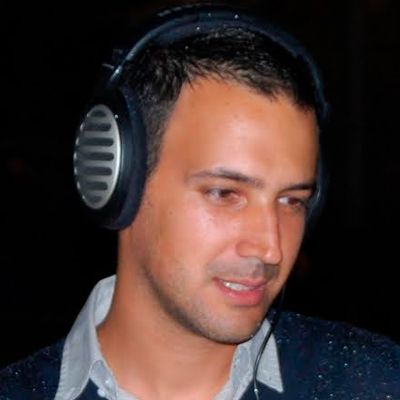
Anthropologist and documentary filmmaker. PhD in Anthropology: Politics and Exhibitions of Culture and Museology from the Faculty of Social and Human Sciences of Universidade Nova de Lisboa (NOVA FCSH) and from ISCTE-IUL, and a master’s degree in Anthropology, with a specialization in Visual Culture, from NOVA FCSH. Graduate at the National Film and Television School (UK) and a BA (Hons) in Film and Broadcast Production at the London Metropolitan University. Researcher at the Center for Research Networks in Anthropology (CRIA) and coordinator of the Laboratory of Visual Anthropology and Arts (NAVA) at CRIA. He has been an assistant professor at NOVA FCSH since 2017 and the University of Coimbra from 2019 to 2020.
Sabrina D. Marques

Sabrina D. Marques, born in Paris (1988), is a visual artist and researcher living and working in Lisbon. With a degree in Media (FCSH), Film (ESTC) and PHD candidate in History of Art (FCSH). Is a member of the Photography and Film Studies Cluster (IHA). Publishes in several magazines and national and international publishers. Programming and writing for Film Festivals, Showcases, Museums, Galleries and Film Clubs. As a film-maker she has directed several shorts and film essays. The Photo-Cines (2021) is her documentary feature directorial debut.
Sasha Kulak
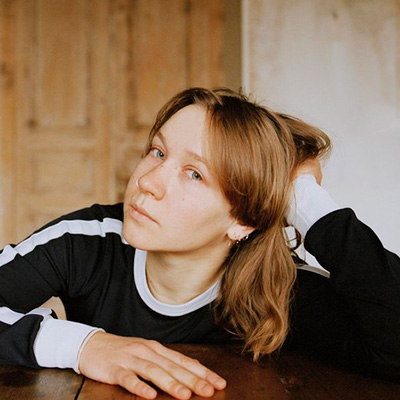
Sasha Kulak´s work in film spans a variety of visual projects ranging from documentary to fashion and music videos to photography and curation. Her films have taken her across the world with her first award winning documentary ‘Salamanca’ (2015, 40'), premiering at IDFA 2015 and screening at HotDocs, Camden and a number of other festivals. Another recent feature of Sasha’s - ‘Quicksilver Chronicles’ (2019, 74'), which was shot in the USA, premiered at the Visions du Reel in Nyon, Switzerland.
Susana Nobre
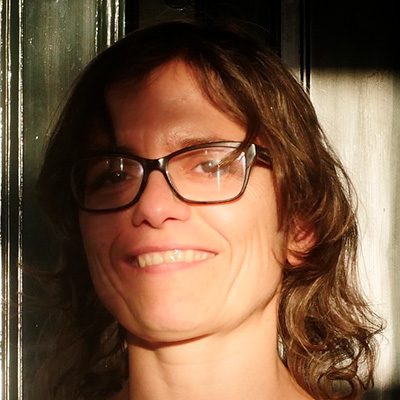
She was born in Lisbon in 1974. In 1998 she received a B.A. in Communication Sciences from Lisbon’s Nova University. Since then she started to make films that have been shown in the following festivals: Cannes (Directors’ Fortnight), Berlinale, Rotterdam, BFI London IFF, Angers, Viennale, Visions du Reel, Rio de Janeiro, among others. In 2006 she became a member of the production company Terratreme (formerly Raiva), where she has been working as an executive producer in several projects. During the present year she will be preparing the feature film Rabat City.
Steve Rickinson
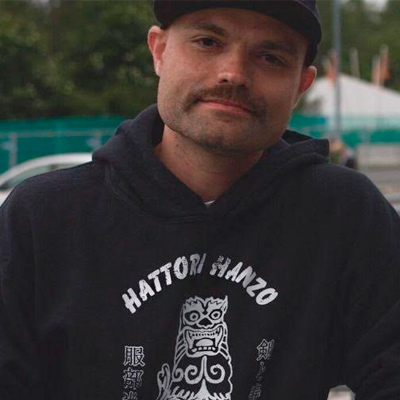
Currently based in Bucharest by way of Amsterdam, Brooklyn, Tokyo, and Mumbai, Steve is the industry editor for Modern Times Review: The European Documentary Magazine. Additionally, his monthly Dok.cetera column appears in Bucharest-based cinema magazine Films in Frame, and also acts as content developer and web editor for Amsterdam’s IN-EDIT NL Music Documentary Festival. Prior to this, Steve was Senior Editor for New York-based independent cinema platform IndieWood/Hollywoodn’t, as well as having an extensive background in music journalism and public relations with published work across USA, Netherlands, UK, Taiwan, and German media.
Thor Morales
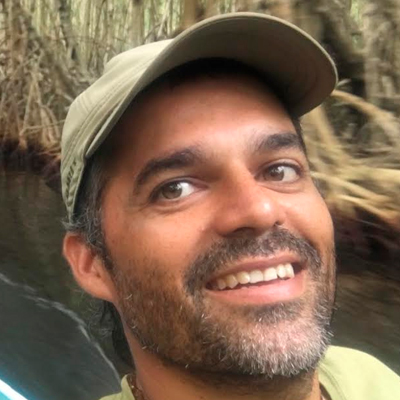
Mexican/American. He graduated as a biologist at the Universidad Veracruzana and holds a master's degree from El Colegio de la FronteraSur. Author of several book chapters and scientific and dissemination articles on ecology, ethno-ornithology and participatory video. He is a self-taught photographer and cameraman. Since 2011 he has been fully dedicated to photography, video production and facilitating participatory video and photography workshops. Thor currently lives in Takoma Park, Maryland, USA, with his family.
Verónica Vazquez Valdez

Academic at BUAP. Doctorate in History and Ethnohistory, Master’s Degree in Communication. She also holds a degree in Photography and Visual Anthropology. Her academic production is based on the social investigation of photography as a source of primary information, addressing the phenomena of memory and cultural reproduction. Member of the National System of Researchers of the National Council of Science and Technology (Mexico).
Waldir Xavier
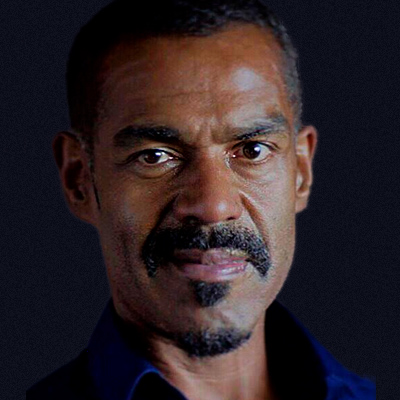
Waldir Xavier studied Journalism, Philosophy and Cinema. Living in France for over 15 years, he graduated as an Image Editor and specialized in Sound Design, having worked with directors such as Youssef Chahine, João Botelho, Bertrand Tavernier and Raoul Peck. Among his best known works are "Central do Brasil" by Walter Salles, Golden Bear at the Berlin Festival in 1998, "Quarto de Vanda" by Pedro Costa, "De Longe te Observo" by Lorenzo Vigas, Golden Lion of the Venice Film Festival in 2015 and “The Invisible Life of Eurídice Gusmão”, by Karim Aïnouz, Un Certain Regard award at the 2019 Cannes Film Festival.